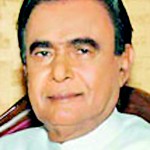News
What was said in the House
A motion put to Parliament this week by a group of Government MPs opposing a move by the United Nations High Commissioner for Human Rights to initiate an investigation against Sri Lanka, was passed by a majority vote in the House on Wednesday. The Government secured 144 votes in support of its own motion. The 10 TNA MPs present voted against it, while the 33 UNP MPs present abstained from voting. The DNA/JVP MPs walked out of the House before a vote was taken by name. Both the UNP and the JVP submitted amendments to the Government motion, but were rejected.
The Motion before the House stated,” This Parliament resolves that the investigation to be conducted against Sri Lanka by the Office of the United Nations High Commissioner for Human Rights should not be carried out on the ground that such a course of action is detrimental to the process of reconciliation and peace, and that it erodes the sovereignty, dignity and stature of Sri Lanka.”
The signatories to the Motion were nine ruling party MPs, namely Achala Jagodage, Mrs Malani Fonseka, Janaka Bandara, Udith Lokubandara, A.H.M. Azwer, Shantha Bandara, J.R.P. Suriyapperuma, Nimal Wijesinghe and R. Dumindha Silva.
MP Janaka Bandara who moved the Motion, made an impassioned plea on behalf of all Sri Lankans, saying, “Allowing an international team of investigators into the country would be a violation of the Constitution of the country.”
“All members of this House are bound to uphold the Constitution. With an international team coming here to investigate, it will violate the Constitution, especially, Article 1, 3 and 4. We agree to have international relations, but it should not override the Constitution.”
During the two-day debate, MPs from all parties expressed their views for and against the Motion. Here are excerpts from the views expressed:
UNP MP Wijeyadasa Rajapaksha:
The Government willfully entered into an agreement with UN Secretary General Ban Ki-moon, immediately after the war, to allow an 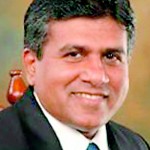 international investigation. The agreement that the Government entered with Ban Ki-moon is far more serious and a clear betrayal when compared with the 1815 Kandyan Convention. This is more than what Don Juan Dharmapala did. This agreement will make all of us suffer, in case an embargo is enforced against Sri Lanka. We are now forced into this situation because of the signing of an agreement between the President and Ban Ki-Moon on May 19, 2009.
international investigation. The agreement that the Government entered with Ban Ki-moon is far more serious and a clear betrayal when compared with the 1815 Kandyan Convention. This is more than what Don Juan Dharmapala did. This agreement will make all of us suffer, in case an embargo is enforced against Sri Lanka. We are now forced into this situation because of the signing of an agreement between the President and Ban Ki-Moon on May 19, 2009.
During the final days of the war, when a host of foreign dignitaries visited the country they were labeled as terrorists, and the Government antagonised the entire international community. We used to have a good diplomatic service which no longer exists. Our foreign service has now become a system used to pamper the kith and kin. How many of them understand foreign policy or have the necessary qualifications?”
JVP MP Anura Kumara Dissanayaka:
This is a political gimmick by the Government. You did not consult Parliament on more important matters such as appointing the 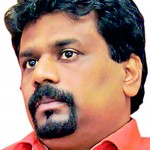 LLRC or implementing its recommendations, and now we are being asked to vote for this Motion, so that you can hoodwink the international community.
LLRC or implementing its recommendations, and now we are being asked to vote for this Motion, so that you can hoodwink the international community.
I am moving several amendments to the Government Motion. We have listed a number of other issues that the Government must investigate sincerely. This includes the shooting of civilians in Weliweriya, the killing of the Katunayake FTZ worker Roshan Chanaka, Chilaw fisherman Anthony Fernando, a death in Police custody as well attacks on journalists and media institutions.”
Tamil National Alliance (TNA) Parliamentary group Leader R. Sampanthan:
“The Motion before us is illustrative of the frivolity that has characterised the Government’s attitude to reconciliation and accountability. The Motion refers to a resolution by the “Human Rights Commission”, although the United Nations (UN) Commission on Human Rights was replaced by the Human Rights Council more than eight years ago. Further, the Motion refers to the Council 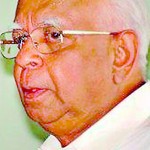 resolution as one that is “against Sri Lanka”. The resolution affirmed the Council’s “commitment to the sovereignty, independence, unity and territorial integrity of Sri Lanka”. How then can the Government claim that this resolution is “against” the country?”
resolution as one that is “against Sri Lanka”. The resolution affirmed the Council’s “commitment to the sovereignty, independence, unity and territorial integrity of Sri Lanka”. How then can the Government claim that this resolution is “against” the country?”
The internationalisation of the question of accountability and justice, in respect of violations committed by both sides during the war, was entirely on account of a considered decision made by the Government and the President in May 2009. That decision was a correct one, and the governance of the country would have been significantly smoother, if the government had only made good on its own assurances to UN Secretary General Ban Ki Moon. The Government reneged on its promise to the UN Secretary General, which led to him appointing a Panel of Experts to advise him on implementing his agreement with the Sri Lanka Government.
The TNA hopes that, even at this late stage, the Government accepts the invitation of the High Commissioner for Human Rights to participate constructively in the investigation, including providing investigators access to victims, witnesses and forensic evidence. It must be known that the failure of the Government to accept the offer to cooperate with the investigation will only send Sri Lanka further down the path of isolation.
External Affairs Minister Prof G.L. Peiris:
“We have to understand that we cannot expect a fair and impartial inquiry by this international team of inquirers. During the 30 years 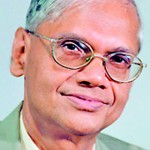 Sri Lanka was subjected to LTTE terrorism, no resolution was passed in the UNHRC on the human rights situation in Sri Lanka then.”
Sri Lanka was subjected to LTTE terrorism, no resolution was passed in the UNHRC on the human rights situation in Sri Lanka then.”
“This move of the UNHRC is exceeding its mandate. Technical assistance is something that we should request. It is not justifiable to force it upon us. I think it is better if those countries turn the searchlight inward and look into their own problems, rather than turning the searchlight outwards. There is no uniformity in the standards applied, and this is highly selective treatment of our country,” he added.
| PM denied turn to speak walks out in anger
A visibly angry Prime Minister D.M. Jayaratne walked out of the Chamber on Wednesday, when he was denied his turn to speak, during the time allocated to him, on the Motion against allowing an international inquiry against Sri Lanka. The Prime Minister was angered when Deputy Chairman of Committees, Chandra Kumar Murugesu who was presiding, called upon Traditional Industries and Small Enterprise Development Minister Douglas Devananda to address the House soon after TNA MP A. Vinyagamoorthy concluded his speech. Both the Prime Minister and Minister Devananda stood up at the same time and Premier Jayaratne said, as he had got up first, he should be recognised by the Chair as the next speaker, or else he would walk out of the Chamber. The Prime Minister returned to the Chamber by evening, to vote for the Motion. |


